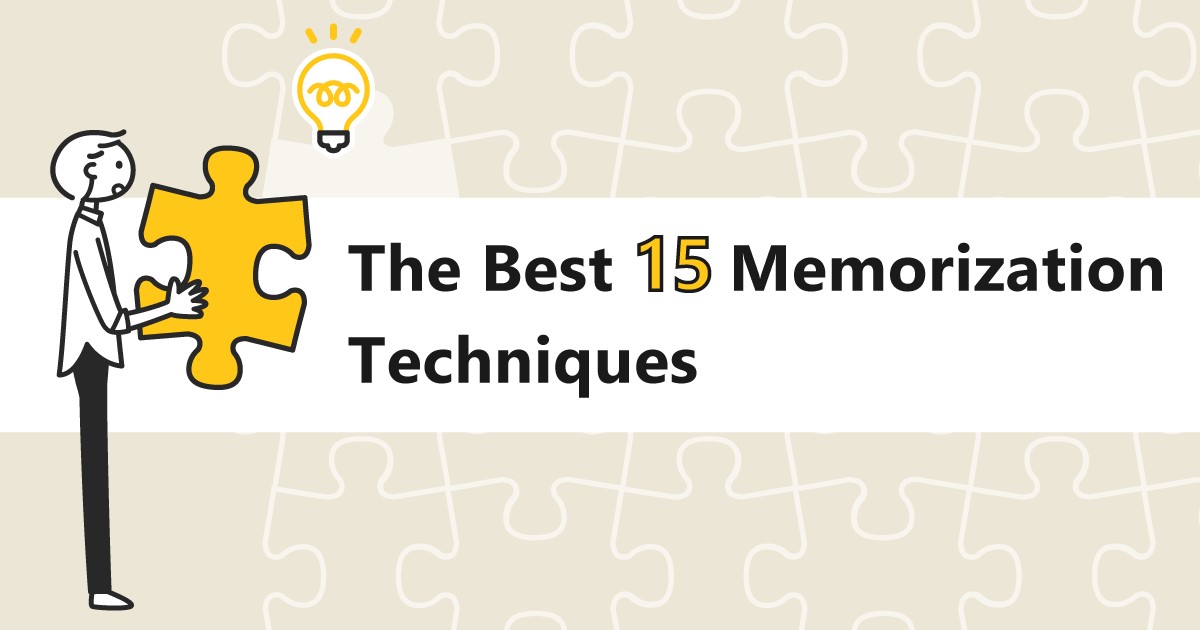LIFESTYLE
Navigating openhouseperth.net insurance: A Comprehensive Guide

Understanding your need for openhouseperth.net insurance is an integral part of responsible homeownership. Home insurance not only protects your most valuable asset but also provides peace of mind in the face of unforeseen events. Whether you’re a seasoned homeowner, a first-time property buyer, or a real estate professional guiding clients through the nuances of home insurance, this comprehensive guide will walk you through the essentials. You’ll learn not only how to choose the right policy to safeguard your home but also how to optimize your insurance experience for the best possible coverage at the most cost-effective price.
The Importance of openhouseperth.net insurance
Begin with the why of home insurance. Your home is a sanctuary where you build memories and realize dreams; keeping it safe is a top priority. Delve into the myriad threats homes face, from natural disasters to burglaries, and how insurance serves as a bulwark against these risks. Highlight stories of homeowners who were thankful they had insurance when life threw them a curveball. The ultimate goal is to impress upon homeowners the necessity of this safeguard.
Understanding Home Insurance
Definition and Types of Coverage
Demystify the jargon surrounding insurance. Explain the three primary components of a home insurance policy:
- Dwelling Coverage: Protects the physical structure of your home, including the roof and walls, from various perils outlined in your policy.
- Personal Property: Reimburses you for the loss of personal belongings, such as furniture and clothing, either inside or outside your home.
- Liability: Provides legal protection and financial restitution if someone sues you for bodily injuries or property damage that occurs in your home or through your actions.
Factors Affecting Insurance Costs
Insurance isn’t one-size-fits-all, and the price you pay for coverage will vary. Delve into the factors underwriters consider when determining premiums, such as:
- Home’s location
- Construction type
- Claim history
- Home’s age
- Security features
Discuss ways homeowners can positively affect these variables to lower their insurance costs.
Choosing the Right Policy
Assessing Coverage Needs
Determining the right amount of insurance coverage can be complex. Offer practical advice to help homeowners assess their true insurance needs, including conducting a home inventory and understanding local hazards that could affect their property.
Comparing Quotes and Providers
To find the best policy, one must shop around. Provide a step-by-step guide to obtaining quotes from different insurers and evaluating what each policy includes. Encourage readers to look beyond the price tag and consider the reputation and service record of the insurer.
Evaluating Deductibles and Policy Limits
An essential aspect of choosing the right home insurance policy involves understanding and selecting appropriate deductibles and policy limits. The deductible is the amount you’ll pay out of pocket before your insurance coverage kicks in after a claim. Generally, a higher deductible means lower premium costs, but it also means more significant financial responsibility if you file a claim. Policy limits, on the other hand, determine the maximum amount your insurer will pay for a covered loss. Ensuring these figures align with your financial situation and the value of your insured items is crucial for balancing cost and protection effectively.
How to Get Insurance Quotes on OpenHousePerth.net
Getting accurate home insurance quotes is crucial for finding the right coverage for your needs. OpenHousePerth.net simplifies this process with an easy-to-use platform that connects homeowners with reputable insurance providers. Follow these steps to secure your home insurance quote.
Step 1: Prepare Your Information
Before you begin, have all necessary information on hand, including details about your home’s construction, security features, and any recent renovations. Also, prepare a list of personal property you wish to insure to ensure comprehensive coverage.
Step 2: Navigate to the Insurance Quote Page
Visit OpenHousePerth.net and locate the “Insurance Quotes” section from the homepage. This section is dedicated to helping homeowners find and compare insurance quotes from various providers.
Step 3: Fill Out the Quote Request Form
Complete the quote request form with your personal and property details. Be as accurate and detailed as possible to ensure the quotes you receive are precise.
Step 4: Review and Compare Quotes
Once you submit your information, OpenHousePerth.net will match you with insurers that meet your criteria. You’ll receive quotes from multiple providers, allowing you to compare coverage options, deductibles, premiums, and policy limits.
Step 5: Choose Your Preferred Provider
After reviewing the quotes, select the insurance provider that offers the best coverage at a price that fits your budget. You can then proceed to finalize your policy directly with the insurer.
By using OpenHousePerth.net, homeowners can efficiently gather and compare home insurance quotes, ensuring they make an informed decision on their home protection needs.
Exploring Coverage Options
Basic vs. Comprehensive Coverage
Understand the difference between basic and comprehensive coverage plans. Basic coverage, often referred to as a “named perils” policy, protects against specific risks listed in your policy, such as fire or theft. Comprehensive or “all-risk” policies offer broader protection, covering all perils except those explicitly excluded. This section will help you decide which type of coverage best suits your needs.
Add-Ons and Endorsements
Explore the various add-ons and endorsements that can enhance your home insurance policy. These optional protections can cover valuable items not fully protected under a standard policy, such as jewelry, art, or high-tech gadgets. Additionally, endorsements can provide coverage for risks not typically covered, like sewer backup or overland water damage.
Discounts and Savings Opportunities
Discover the different discounts insurance companies offer to reduce your premium. Common discounts include those for installing security systems, being claim-free, or bundling multiple policies with the same provider. This section will guide you on how to qualify for these discounts and lower your insurance costs.
Tips for First-Time Buyers
Explaining Insurance Terminology
For the uninitiated, the language of insurance can be daunting. Define and contextualize common insurance terms like “deductible,” “endorsement,” and “actual cash value” to empower first-time buyers in their policy searches.
Common Pitfalls to Avoid
Inform rookie homeowners about common missteps like underinsuring their property, not shopping for the best coverage, or failing to update their policy regularly after making home improvements. Show them the impact of these lapses with real-life examples.
Maximizing Your Insurance Benefits
Once you’ve selected the right home insurance policy, it’s essential to understand how to make the most of your coverage. Regularly review your policy to ensure it still aligns with your current needs, especially after significant life events or home upgrades. Also, know how to file a claim efficiently and correctly to avoid any delays in processing. Familiarizing yourself with the claims process and your insurer’s specific requirements can expedite your claim, getting you the assistance you need when you need it.
Building a Relationship with Your Agent
A good relationship with your insurance agent can be invaluable. Your agent should be a trusted advisor who understands your needs and can provide guidance when choosing or updating your coverage. Don’t hesitate to reach out with questions or for clarification on your policy details. An informed homeowner is better equipped to make decisions that adequately protect their investment.
Remember, home insurance is not a “set it and forget it” affair. By staying proactive and informed, you can ensure your home remains well-protected against the unpredictable, while also potentially saving money on premiums down the line.
Special Considerations for openhouseperth.net insurance
Importance of Insurance in Property Transactions
Demonstrate to real estate professionals how insurance can make or break a deal. It serves as a trust signal to buyers and can alleviate concerns in contingency periods.
Liability Protection for Agents
Protecting the interests of clients and the property itself is a paramount responsibility for real estate agents. Advocate for comprehensive errors and omissions insurance, which can safeguard agents’ professional activities.
Exploring Policy Options
Evaluating Policy Limits
Investigate the significance of selecting appropriate policy limits. Understanding the value of your home and possessions ensures you’re not underinsured, which could lead to significant out-of-pocket expenses in the event of a claim.
Understanding Exclusions
Gain insight into common policy exclusions. Recognizing what your insurance does not cover is as crucial as knowing what it does. This section helps homeowners identify potential gaps in coverage that might need additional policies or endorsements.
Comparing Deductibles
Learn how different deductible levels can affect your premiums and out-of-pocket costs in the event of a claim. Choosing the right deductible is a balancing act between immediate savings and potential future costs.
Customer Satisfaction and Reviews
Gathering Customer Feedback
Encouraging feedback from policyholders is crucial for insurers to understand and meet customer expectations. Implementing regular surveys and creating platforms for reviews allows customers to express their satisfaction levels, concerns, and suggestions for improvement. This feedback loop not only helps insurers tailor their services but also fosters a relationship of trust and transparency with their clientele.
Analyzing and Acting on Feedback
Collecting customer feedback is only the first step; acting on this information is what truly makes a difference. Insurance companies should analyze the data received to identify common issues, areas for enhancement, and potential opportunities for new services. Implementing changes based on customer feedback demonstrates a company’s commitment to its policyholders’ needs and can significantly impact overall customer satisfaction.
Showcasing Testimonials and Reviews
Positive testimonials and reviews can be powerful tools for attracting new customers. Highlighting these on the company website or in marketing materials can provide prospective clients with real-world evidence of an insurer’s reliability and quality of service. It’s also essential to address negative feedback constructively and visibly, showing potential and current customers that the company values their input and is committed to continuous improvement.
Leveraging Digital Tools
Implementing Efficient Management Systems
Modern insurance companies must harness the power of digital tools to streamline their operations, from policy management to customer service. Implementing efficient management systems allows for better organization of client data, faster processing of claims, and an overall enhancement in service delivery.
Enhancing Customer Communication
Digital communication tools — such as chatbots, social media platforms, and mobile apps — enable insurers to maintain a constant line of communication with their clients. These tools can provide instantaneous policy information, claim updates, and answers to frequently asked questions, improving the customer experience.
Utilizing Data Analytics
By leveraging data analytics, insurance companies can gain valuable insights into customer behavior, risk assessment, and market trends. This data can be crucial for making informed decisions about policy offerings, marketing strategies, and customer retention efforts.
Cybersecurity Measures
With the increase in digital transactions and data storage, cybersecurity becomes paramount. Insurance companies must invest in robust cybersecurity measures to protect client information from breaches, ensuring trust and confidentiality in all online interactions.
Claims Help
Understanding the Claims Process
Familiarizing yourself with the claims process is crucial for a seamless experience during times of need. Detailed information about initiating a claim, required documentation, and timelines helps policyholders prepare adequately beforehand, ensuring a smoother transaction.
Assistance During Emergencies
Know that assistance is available 24/7 in case of emergencies. This section explains how to get in touch with your insurance provider outside of standard business hours, including hotlines and online submission options, ensuring you’re never left unattended.
Tips for a Speedy Claims Resolution
Maximizing the efficiency of the claims process benefits both the insurer and the insured. We offer practical tips for speeding up claims resolution, such as how to present claims effectively, document damages comprehensively, and communicate efficiently with adjusters.
Common Claims Questions Answered
Navigate through the most frequently asked questions regarding claims, addressing concerns about deductibles, timelines, policyholder obligations, and how to dispute a claim decision if necessary. This resource aims to demystify the process and provide clarity.
Conclusion
Reiterate the essential role of home insurance in sound financial planning. Encourage readers to take action, reminding them that the peace of mind offered by a robust insurance policy is irreplaceable.
Home insurance isn’t just a formality; it’s a crucial safety net. By following the advice and insight provided in this guide, homeowners and industry professionals alike can ensure they are equipped to make informed decisions about one of the most important financial products they’ll ever buy.
Also Read: Aoomaal: Unlocking Personal Mastery
FAQs
Q: How do I know if I’m adequately covered?
A: Assessing your coverage means reviewing your policy details, the values of your home and possessions, and any recent changes in your life or property. It’s recommended to conduct an annual review with your insurance provider to ensure your coverage aligns with your current needs.
Q: Can I switch home insurance providers at any time?
A: Yes, homeowners can switch insurance providers at any time. However, it’s essential to ensure there are no lapses in coverage during the transition. Review your current policy for any cancellation fees or requirements.
Q: What’s the difference between actual cash value and replacement cost coverage?
A: Actual cash value coverage will reimburse you for the value of lost items, considering depreciation. In contrast, replacement cost coverage reimburses the full cost of replacing your items with new ones, without accounting for depreciation.
Q: Does home insurance cover natural disasters?
A: Coverage for natural disasters varies by policy and location. Standard policies typically cover certain types of natural events, but others, like floods or earthquakes, often require separate policies. It’s crucial to understand your policy’s specifics and consider additional coverage if needed.
Q: How can I lower my home insurance premiums?
A: Homeowners can potentially lower their premiums by increasing their deductible, installing security systems, maintaining a good credit score, and checking for policy discounts. It’s also beneficial to compare quotes from different providers to ensure competitive pricing.
LIFESTYLE
Empowering Women’s Safety: Practical Tips for Concealed Carry

The Benefits of Concealed Carry for Women
The ability to carry a concealed weapon can provide women with a heightened sense of security and self-reliance. Whether walking alone at night, traveling to unfamiliar areas, or simply navigating daily routines, having this option can be a crucial factor in enhancing personal safety. For many women, the psychological comfort that comes with being prepared can be just as important as the physical protection a weapon offers.
Choosing the right thigh holster womens can offer a discreet and comfortable way to keep a weapon accessible, further increasing confidence in diverse situations. This type of holster is particularly advantageous under skirts or dresses, providing easy access while staying hidden from view.
Different Concealed Carry Options
When it comes to concealed carry, women have a variety of effective options to choose from, each with its own set of advantages:
- Thigh Holsters: Specifically designed for wear under skirts or dresses, thigh holsters provide easy access to the firearm while remaining out of sight. They’re an excellent choice for formal occasions or for those who prefer not to wear belts.
- Belly Bands: These versatile and comfortable holsters can be worn under various clothing types. Belly bands offer multiple pockets for firearms and accessories, making them suitable for casual and athletic wear.
- Concealed Carry Purses: Designed with dedicated compartments for firearms, these purses allow for quick and easy access. They come in various styles to match everyday fashion while ensuring safety and preparedness.
The right option depends on personal preference, lifestyle, and daily activities. When choosing the best method for carrying a concealed weapon, comfort, ease of access, and concealability must be considered.
Importance of Training and Practice
Training and regular practice are essential when carrying a concealed weapon. These practices ensure personal safety and the safety of others in the vicinity. Proper training can distinguish between a confident, prepared individual and one who is unsure or hesitant in a critical situation. Programs like those offered by the US Concealed Carry Association provide comprehensive training on firearm handling, safe storage, and legal considerations.
Key elements to focus on during training include:
- Proper Handling: Learning the correct way to draw, aim, and fire a weapon is crucial. This includes understanding the mechanics of the firearm and practicing safe handling techniques.
- Safe Storage: Knowing how to securely store a firearm when unused is vital for preventing accidents or unauthorized access.
- Legal Regulations: Being aware of the laws and regulations in your area helps ensure compliance and avoids legal issues.
Continual practice reinforces muscle memory, making it easier to react effectively in high-stress situations. Regular visits to the shooting range and participation in training sessions can maintain and improve your skills over time.
Legal Considerations
Understanding the laws regarding concealed carry in your state is vital. Regulations vary significantly across states, and being well-informed is the first step to responsible firearm ownership. Always stay updated on the legal requirements in your area, as misunderstandings or ignorance can lead to serious consequences.
Resources like the NRA-ILA provide detailed information about state-specific gun laws. This ensures you remain compliant with current legislation and understand your rights and responsibilities as a concealed carry permit holder. Familiarize yourself with topics such as where you can legally carry your weapon, any necessary permits, and situations that may require you to disclose your concealed status to law enforcement.
Choosing the Right Concealed Carry Apparel
Comfort and accessibility are key when selecting concealed-carry apparel. The ideal clothing should provide easy access to the weapon without sacrificing style or comfort. Many options are tailored for women, addressing unique needs and preferences while offering practicality and style.
Look for moisture-wicking fabrics, adjustable straps, and designs that maintain a low profile to ensure the concealed weapon does not create noticeable bulges under clothing. The right apparel can make a significant difference, enhancing the wearer’s comfort and the effectiveness of the concealed carry method.
Investing in high-quality apparel designed for concealed carry can pay off in terms of comfort, confidence, and readiness. It is worth considering items that offer additional compartments or features designed to enhance safety and convenience.
LIFESTYLE
Internal Summer Study Courses Meaning

The Meaning and Impact of Internal Summer Study Courses for Personal Growth
As the long days of summer stretch out before us, they bring not only warmth and leisure but also an opportunity for growth and development. For many, summer is synonymous with vacations, relaxation, and a break from the usual routine. However, it also presents a unique opportunity to engage in internal summer study courses—structured programs or self-guided learning endeavors designed to foster personal growth, reflection, and skill development. But what do these courses truly mean for us as humans, and how do they impact our lives?
The Concept of Internal Summer Study
Internal summer study courses go beyond traditional academic learning. While they can include formal classes, they often focus on personal enrichment, self-discovery, and the cultivation of new skills. These courses can take many forms: online workshops, self-paced study plans, or even reflective practices like journaling, meditation, or creative projects. The “internal” aspect emphasizes that the growth these courses foster is deeply personal, affecting not just intellectual capacities but emotional and psychological well-being as well.
A Time for Reflection and Renewal
Summer, with its slower pace and often more flexible schedules, is an ideal time for introspection. Internal summer study courses provide a structured way to engage in this reflection. Whether it’s learning a new language, diving deep into a philosophical text, or exploring mindfulness techniques, these courses encourage individuals to pause, look inward, and assess their goals, values, and desires. This period of reflection can lead to profound insights and a renewed sense of purpose.
Building Resilience and Adaptability
In a rapidly changing world, the ability to adapt and grow is crucial. Internal summer study courses can help build resilience by challenging individuals to step outside their comfort zones. Engaging in new learning experiences fosters a growth mindset—the belief that abilities and intelligence can be developed with effort and practice. This mindset not only enhances problem-solving skills but also prepares individuals to face challenges with confidence and creativity.
Enhancing Emotional Intelligence
One of the most significant benefits of internal summer study is the enhancement of emotional intelligence (EQ). EQ involves the ability to recognize, understand, and manage our own emotions, as well as to empathize with others. Courses that focus on self-awareness, empathy, communication, and relationship-building can significantly improve emotional intelligence. As individuals become more attuned to their own emotions and the emotions of others, they are better equipped to navigate personal and professional relationships, leading to more fulfilling and harmonious lives.
Cultivating Lifelong Learning
The habit of lifelong learning is a powerful tool for personal and professional success. Internal summer study courses instill a love for learning that extends beyond formal education. By pursuing knowledge and skills that align with personal interests and passions, individuals cultivate a sense of curiosity and a desire for continuous growth. This habit of lifelong learning not only keeps the mind sharp but also enriches life by opening up new opportunities and experiences.
Fostering Creativity and Innovation
Creativity is often sparked when the mind is allowed to wander, experiment, and explore new ideas. Internal summer study courses, particularly those that involve artistic or creative pursuits, provide the space and freedom to innovate. Whether it’s through writing, painting, music, or other forms of creative expression, these courses encourage individuals to tap into their imagination and think outside the box. This creative exploration can lead to innovative solutions to problems and a deeper understanding of oneself.
Strengthening Self-Discipline and Focus
Engaging in internal summer study requires a certain level of self-discipline and focus, especially when the learning is self-directed. Setting goals, managing time effectively, and staying committed to a study plan are all essential components of success. These skills are not only valuable for completing the course but are also transferable to other areas of life. The discipline and focus developed through summer study can improve productivity, enhance decision-making, and lead to a greater sense of achievement.
Learn more such informative blogs on website
Conclusion: A Pathway to Personal Fulfillment
Internal summer study courses offer more than just knowledge or skills; they provide a pathway to personal fulfillment. By engaging in reflective and purposeful learning, individuals can gain a deeper understanding of themselves, develop essential life skills, and cultivate a mindset of growth and resilience. As we embrace the opportunities that summer brings, internal study courses remind us that the journey of self-discovery and improvement is continuous, enriching, and deeply meaningful.
In a world that often values external achievements and accolades, internal summer study courses offer a refreshing reminder that true growth and fulfillment come from within. By dedicating time to our personal development during the summer months, we invest in our future selves, creating a foundation for a life of purpose, creativity, and well-being.
LIFESTYLE
Memory Techniques:15 Best Techniques

Mastering Memory: Techniques to Enhance Your Cognitive Recall

In our fast-paced, information-saturated world, having a robust memory is more crucial than ever. Whether you’re a student, professional, or lifelong learner, improving memory can enhance both personal and professional life. Here’s a look at several effective memory techniques:
Mental Exercises
Engaging in various mental exercises can sharpen your memory. Consider activities such as:
- Puzzles and Games: Engage in activities like crossword puzzles, Sudoku, or strategy games to challenge your brain.
- Learning New Skills: Take up a new hobby or skill, such as learning a musical instrument or a new language, to keep your brain engaged and flexible.
Visualization
Visualization leverages your brain’s ability to recall images. This technique involves creating vivid, memorable images related to the information you want to remember. For example, to remember a grocery list, you might imagine a giant, talking banana in a supermarket.
The Method of Loci
This ancient technique involves associating the information you want to remember with specific physical locations. Imagine walking through a familiar place and “placing” pieces of information in different spots. When you need to recall the information, you mentally walk through that space and retrieve the data associated with each location.
Spaced Repetition
Spaced repetition is based on the principle that we remember information better when we review it at increasing intervals over time. Tools like Anki or Quizlet can automate this process by scheduling reviews of material just before you’re likely to forget it.
Elaborative Rehearsal
Elaborative rehearsal involves making information more meaningful by relating it to what you already know. For instance, when learning a new concept, try to connect it to something familiar or create a story around it. This deeper processing helps improve retention.
Active Learning
Active learning engages your brain more than passive reading. Techniques include:
- Self-testing: Regularly quiz yourself on the material you’re trying to learn. This not only assesses your knowledge but also reinforces it.
- Teaching others: Explain what you’ve learned to someone else. Teaching forces you to process and organize information, which enhances your understanding and recall.
Healthy Lifestyle
A well-balanced lifestyle supports cognitive function. Key aspects include:
- Sleep: Adequate sleep is essential for memory consolidation. Aim for 7-9 hours per night to ensure your brain processes and stores new information effectively.
- Nutrition: A diet rich in antioxidants, healthy fats, and proteins supports brain health. Foods like blueberries, walnuts, and fish are particularly beneficial.
- Exercise: Regular physical activity increases blood flow to the brain, which can improve cognitive function and memory.
Mindfulness and Stress Management
Chronic stress and anxiety can impair memory. Techniques such as mindfulness meditation, deep breathing exercises, and regular relaxation can help manage stress levels and enhance cognitive function.
By incorporating these techniques into your daily routine, you can significantly improve your memory and cognitive abilities. Experiment with different methods to find what works best for you, and remember that consistency is key in making these techniques effective.
Attention and Focus
Memory relies heavily on attention. Improving your focus can significantly enhance your ability to remember information. Techniques to boost attention include:
- Minimizing Distractions: Create a conducive environment for learning by reducing noise, turning off notifications, and setting specific times for study or work.
- Mindfulness Practices: Mindfulness exercises can help train your brain to stay focused and present. Techniques such as single-tasking and regular mindfulness meditation can improve concentration.
Using Technology Wisely
Modern technology offers various tools to support memory enhancement:
- Apps and Software: Tools like Evernote or Microsoft OneNote help organize and manage information efficiently. Memory apps like Memrise or BrainHQ provide interactive exercises designed to improve recall.
- Digital Reminders: Utilize calendar apps and reminder features on your phone to keep track of tasks and deadlines. This reduces cognitive load, allowing you to focus on more complex memory tasks.
Regular Review and Practice
Consistent practice and review are essential for reinforcing memory. Regularly revisit material you’ve learned to keep it fresh in your mind. Techniques like spaced repetition, mentioned earlier, are particularly effective for this purpose.
Healthy Social Interaction
Engaging in social activities can stimulate mental function and improve memory. Socializing requires cognitive effort and can enhance mental agility. Join groups, attend seminars, or participate in discussions to keep your brain active.
Establishing Routine and Organization
Developing a consistent routine can help with memory recall. Use organizational tools such as to-do lists, planners, and organizational apps to keep track of important information and deadlines. This can reduce the cognitive load associated with managing multiple tasks.
Understanding Your Learning Style
Different people have different learning preferences. Understanding whether you are a visual, auditory, or kinesthetic learner can help tailor your memory techniques to your style. For example:
- Visual Learners: Use diagrams, charts, and visual aids.
- Auditory Learners: Engage in discussions, listen to recordings, or use mnemonic rhymes.
- Kinesthetic Learners: Incorporate hands-on activities or physical movement in learning. You can learn more about memory techniques
Conclusion
Enhancing memory is a multifaceted process that involves various techniques and lifestyle adjustments. By incorporating mnemonic devices, visualization, spaced repetition, and other strategies into your daily routine, you can significantly improve your ability to recall information. Combining these techniques with a healthy lifestyle and regular mental exercise will help you maintain and enhance your cognitive abilities over time.
Remember, improvement in memory requires practice and persistence. Experiment with different methods to find what works best for you and stay consistent in your efforts. With dedication and the right techniques, you can master the art of memory and unlock your full cognitive potential.
-

 ENTERTAINMENT8 months ago
ENTERTAINMENT8 months agoUnveiling the Life of Mary Joan Martelly: A Comprehensive Biography
-

 LIFESTYLE9 months ago
LIFESTYLE9 months agoIt is not wisdom but authority that makes a law. T – Tymoff
-

 BUSINESS6 months ago
BUSINESS6 months agoSavvy Shopping Guide: Finding and Using Online Rebates & Offers Like a Pro
-

 TECHNOLOGY8 months ago
TECHNOLOGY8 months agoTANZOHUB: REVOLUTIONIZING YOUR DIGITAL EXPERIENCE
-

 ENTERTAINMENT8 months ago
ENTERTAINMENT8 months agoUnraveling the Mystery of Beth Grosshans Husband
-

 Blog8 months ago
Blog8 months agoWordhippo 5 Letter Words – Everything You Need to Know
-

 HEALTH4 months ago
HEALTH4 months agoYour Ultimate Guide to Preparing for CoolSculpting: Tips and Best Practices
-

 LIFESTYLE6 months ago
LIFESTYLE6 months agoCombatting Household Pests: Insights and Prevention Techniques





